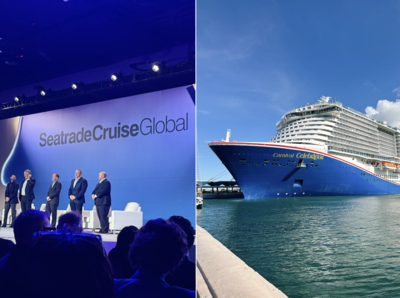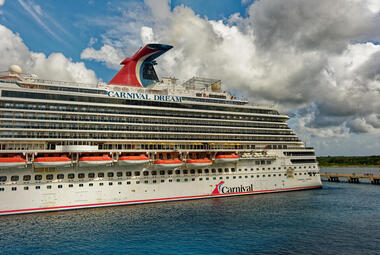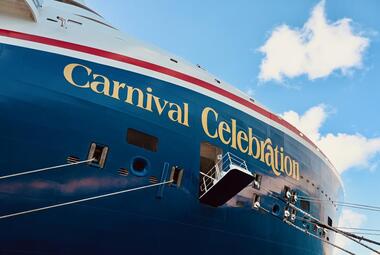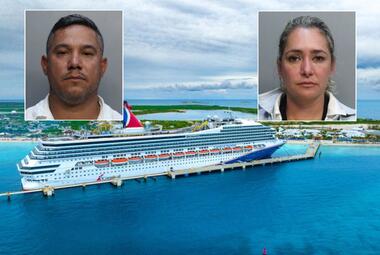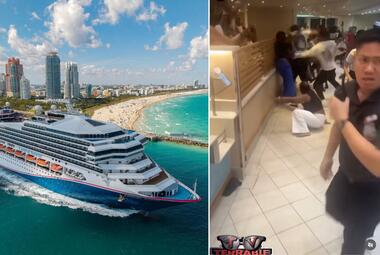Carnival’s CEO is optimistic about the cruise industry’s resilience, despite concerns over a recession.
Josh Weinstein, Carnival Corporation's President, CEO, and Chief Climate Officer, spoke during Seatrade Cruise Global 2025's State of the Global Cruise Industry Keynote about the company's Q1 financial results.
He admitted they had a good quarter, but the bookings were more inconsistent than usual. "It was choppy...There were highs. There were lows as we went through the quarter," he said.
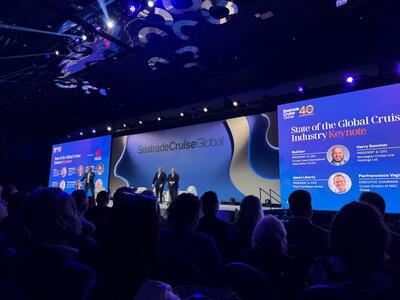
He attributed the variations to the macroeconomy, claiming that finances impact how people live their day-to-day lives. However, as people adjusted to the "new normal," Carnival saw its bookings increase.
In fact, they had more bookings for future sailings in Q1 than ever before as a company. According to Carnival Corporation's Q1 financial report, the company also saw record revenues of $5.8 billion, up over $400 million compared to last year.
Additionally, the net yields outperformed December guidance due to strong demand and onboard spending.
Read more: Carnival Ships By Age: Newest to Oldest (2025)
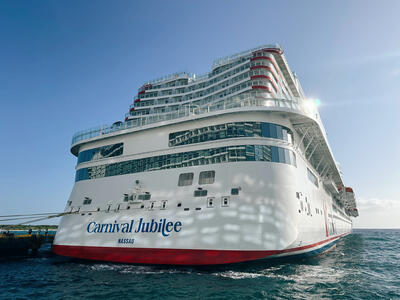
Harry Sommer, President and CEO of Norwegian Cruise Line Holdings Ltd., also admitted that the year started out choppy for his company, with stock prices significantly dropping last Wednesday.
Still, he kept a positive outlook, saying, "Shaky days in the stock market do not have us [changing] our long-term financial strategy models."
Sommer went on to talk about their commitment to generating wonderful vacation experiences to recover financially:

"When you provide a product where you have happy customers on full ships that want to come back, that's a tremendous recipe for financial recovery."
And the record yields are proving that Norwegian is capable of delivering an experience that leaves a lasting impression. Not only did the company carry a record number of passengers last year, but it also had record guest satisfaction scores, according to Sommer.
"As a company or as three brands — Norwegian, Oceania, and Regent — we had the highest guest satisfaction scores since we started recording about 20 years ago...," he remarked, "[And] the guests [who] actually traveled last year are coming back this year in record numbers."
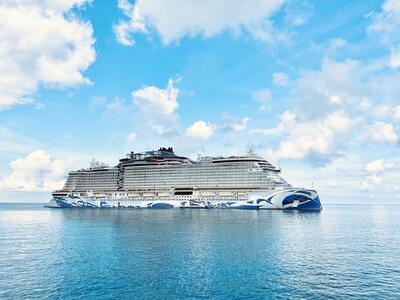
The cruise industry is uniquely positioned because of its overall value. When the economy is tougher, consumers want to make their money go further.
Mainstream fares include everything from accommodation to dining, entertainment, and transportation between ports of call, whereas with land-based vacations, travelers must budget for everything separately.
There are also ways to save on a cruise vacation, from sailing on an older ship to booking an interior cabin and finding affordable shore excursions.
Read more: I traveled on 11 cruise ships last year. Here are the most affordable trips I took
"Current economic noise will not prevent our collective ambitions to grow this industry"
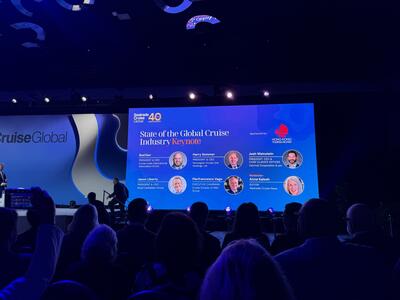
Jason Liberty, President and CEO of Royal Caribbean Group, chimed in to say that cruise lines are ordering ships further out, rather than for delivery in the next 24 months.
He argued that the increase in orders shows that cruise lines have "great confidence" and are planning for long-term growth and resilience.
For example, Carnival Corporation recently ordered two new ships for its German cruise line, AIDA. The delivery of the two vessels isn't expected until 2030 and 2032, respectively. This means that Carnival Corporation's newbuild pipeline includes eight ships set to enter service every year from 2025 to 2033, starting with the Star Princess.
Are tariffs impacting the cruise industry?
Tariffs were also mentioned during the Keynote Address, with the CEOs of major lines agreeing that they hadn't impacted the cruise industry supply chain yet.
Weinstein said, "The short answer is no for various reasons. For example, cruise lines source a lot of local supplies and visit different destinations. "We're not landlocked, so to speak," he added.
There could be a greater economic impact on the cruise industry. However, they don't know what the ripple effects will be yet. While they may not be immune to a recession, Weinstein claims cruise lines are "super resilient."


